撰文:Aster Lee | 插圖:Aster Lee
你身邊有沒有一位朋友,總是滑手機滑至夜深,翌日永遠也睡到下午,而你從來也不能夠約到他早上出來的?其實人類的晝夜節律(chronotype)是可以分為清晨型和夜晚型,俗稱為 early birds 和 night owls。清晨型是早睡早起的一群,而他們感覺較精神的時間是在早上的。相反,夜晚型習慣在晚一點的時間才睡覺和起床,而他們感覺較精神的時間是在午後或黃昏的(Nimrod, 2015)。
研究指出,人的晝夜節律是會受基因所影響的(Klei et al., 2005; Vink et al., 2001)。然而,除了基因因素外,其他因素也對斷定你是清晨型還是夜晚型擔當著重要的角色,這些因素可以分為以下三種:
- 環境因素
不同季節也能影響你的睡醒週期 (sleep-wake cycle)。在一項研究中,Hebert et al.(1998)發現參加者在夏天的睡醒週期是比在冬天的較早。這是因為夏天的日照時間較冬天長,而人們在較多的陽光照射下,會傾向較早清醒。因此,你在夏天時會傾向於清晨型,而在冬天時時會傾向於夜晚型。
- 社會因素
另外一個因素是我們的日常生活。生活較規律的人,是較早清醒的(Monk et al., 2004)。這包括需要每天早上醒來上學的學生以及工作的上班一族。他們穩定的日程令他們的入睡時間得以固定,以得到充足的睡眠。相反,生活較沒規律的人,較大機會熬夜,皆因他們知道即使翌日要早起,後天也能晚一點才起床來補充睡眠。
- 個人因素
就性別而言,一項研究指出,女性普遍比男性較多為清晨型(Randler & Engelke, 2019)。其次,就年齡而言,青少年會傾向是夜貓族。而當他們逐漸長大,晝夜節律會逐漸傾向於清晨型(Klei et al., 2005; Paine et al., 2006)。這可歸因於他們隨年齡增長而在生理上發生的轉變,例如在褪黑素(melatonin)和體溫節律(core body temperature rhythm)的轉變(Duffy et al., 1999)。
實際上,我們也正在受以上的非基因因素所影響而成為清晨型或夜晚型, 但其實你不必為你是哪類型的人而過分擔憂,因為清晨型和夜晚型的人是各有優勢的。
夜晚型的優勢
一項研究指出夜晚型的人的智力得分較高(Roberts & Kyllonen, 1999)。除此之外,夜晚型的人性格較為外向(Neubauer, 1992),而他們大多對轉變抱有一個開放的心態(Vollmer & Randler, 2012)。正因他們較開放,他們會對個人小眾的價值觀抱有較高的接受程度。
清晨型的優勢
清晨型的人傾向有較好的學業表現(Beşoluk et al., 2011; Randler & Frech, 2006)。這是因為學校考試大多數是在早上進行的,而清晨型的人的腦部在這段時間最為清醒(Preckel et al., 2011)。其次,清晨型的人情緒會較為穩定(Muro et al., 2009),並且較低機會患上心理疾病,例如憂鬱症(Randler, 2011)和焦慮症(Lemoine et al., 2013)。再者,清晨型的人會在做事時較注重細節(Randler, 2008),令他們做事較有條理。
不過說到底,每人有專屬於自己的晝夜節律,其實只要適合自己的生活模式便可。但是如果你有持續失眠問題並有夜晚型傾向,而這些問題導致你身心有所影響,你可以參加我們實驗室其中一個治療研究,你亦需要符合以下條件:
- 12 至 24 歲
- 過去一個月至少有兩星期受失眠問題困擾,且睡眠問題令你產生很大的困擾及對日常生活有顯著影響(如社交,學習或者其他方面)
- 長期夜瞓的習慣(夜晚型傾向;經常於凌晨12點後才上床睡覺)
此研究旨在為參與者提供針對失眠的認知行為治療及光治療,以了解治療對改善睡眠困擾的效果。參加者會參與心理輔導小組並配合使用特製強光眼鏡,治療費用全免。有興趣的你,可以到 https://forms.gle/oFDBK3xQ3kD6AaRg6 登記。
- Beşoluk, S. Önder, I., & Deveci, I. (2011). Morningness-eveningness preferences and academic achievement of university students. Chronobiology International, 28, 118–125.
- Duffy, J. F., Dijik, D. J., Hall, E. F., Czeisler, C. A. (1999). Relationship of endogenous circadian melatonin and temperature rhythms to self-reported preference for morning or evening activity in young and older people. Journal of Inverstigative Medicine, 47(3), 141-150.
- Hubert, M., Dumont, M., & Paquet, J. (1998). Seasonal and diurnal patterns of human illumination under natural conditions. Chronobiology international, 15(1), 59-70.
- Klei, L., Reitz, P., Miller, M., Wood, J., Maendel, S., Gross, D., Waldner, T., Eaton, J., Monk, T. H., & Nimgaonkar, V. L. (2005). Heritability of morningness-eveningness and self-report sleep measures in a family based sample of 521 Hutterites. Chronobiology International, 22, 1041-1054.
- Lemoine, P., Zawieja, P., Ohayon, M.M. (2013). Associations between morningness/eveningness and psychopathology: An epidemiological survey in three in-patient psychiatric clinics. Journal of Psychiatric Research, 47, 1095-1098.
- Monk, H. M., Buysse, D. J., Potts, J. M., DeGrazia, J. M., & Kupfer, D. J. (2004). Morningness-eveningness and lifestyle regularity. Chronobiology International, 21, 435–443.
- Muro, A., Gomà-i-Freixanet, M., & Adan, A. (2009). Morningness-eveningness, sex, and the alternative five factor model of personality. Chronobiology International, 26, 1235–1248.
- Neubauer, A. C. (1992). Psychometric properties of two circadian rhythm questionnaires and their relationship with personality. Personality and Individual Differences, 13, 125–132.
- Nimrod, G. (2015). Early Birds and Night Owls: Differences in Media Preferences, Usages, and Environments. International Journal of Communication, 9, 133-153.
- Paine, S.-J., Gander, P. H., & Travier, N. (2006). The epidemiology of morningness/eveningness: Influence of age, gender, ethnicity, and socioeconomic factors in adults (30–49 years). Journal of Biological Rhythms, 21, 68–76.
- Preckel, F., Lipnevich, A. A., Schneider, S., Roberts, R. D. (2011). Chronotype, cognitive abilities, and academic achievement: A meta-analytic investigation. Learning and Individual Differences, 21, 483-492.
- Randler, C. (2008). Morningness-eveningness, sleep-wake variables and big five personality factors. Personality and Individual Differences, 45, 191-196.
- Randler, C. (2011). Association between morningness-eveningness and mental and physical health in adolescents. Psychology, Health & Medicine, 16, 29-38.
- Randler, C., & Engelke, J. (2019). Gender differences in chronotype diminish with age: a meta-analysis based on morningness/chronotype questionnaires. Chronobiology international, 36(7), 888-905.
- Randler, C., Frech, D. (2006). Correlation between morningness-eveningness and final school leaving exams. Biological Rhythm Research, 37, 233-239.
- Roberts, R. D., & Kyllonen, P. C. (1999). Morningness-eveningness and intelligence: Early to bed, early to rise will likely make you anything but wise. Personality and Individual Differences, 27, 1123– 1133.
- Vink J. M., Vink, J. M., Groot, A. S., Kerkhof, G. A., & Boomsma, D. I. (2001). Genetic analysis of morningness and eveningness. Chronobiology International, 18, 809–822.
- Vollmer, C., Michel, U., & Randler, C. (2012). Outdoor light at night (LAN) is correlated with eveningness in adolescents. Chronobiology International, 29, 502–508.




